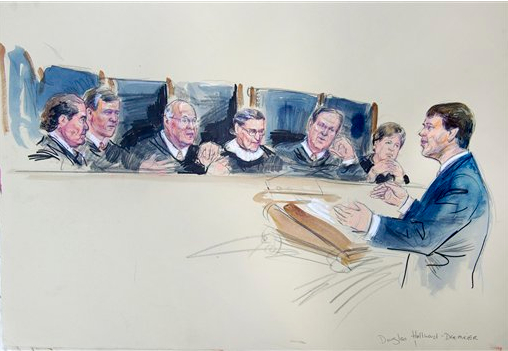Supreme Court justices uphold limits on judges’ appeals for campaign cash
Brooklyn Federal Judge Says Money in Politics, Judicial Elections are Mistakes

WASHINGTON — A divided Supreme Court ruled Wednesday that states can ban judicial candidates from personally asking for campaign contributions, in a decision aimed at protecting the impartiality of elected judges.
The justices’ 5-4 ruling means that restrictions on soliciting campaign cash can remain in place in 30 states that elect state and local judges. In all, 39 states hold elections for judges and some allow personal appeals for donations.
Chief Justice John Roberts, in a rare break with fellow conservatives, said in his majority opinion that laws barring judicial candidates from personally asking for campaign cash do not run afoul of First Amendment free speech rights. He said the state has a compelling interest “in preserving public confidence in the integrity of the judiciary.”

Brooklyn Boro
View MoreNew York City’s most populous borough, Brooklyn, is home to nearly 2.6 million residents. If Brooklyn were an independent city it would be the fourth largest city in the United States. While Brooklyn has become the epitome of ‘cool and hip’ in recent years, for those that were born here, raised families here and improved communities over the years, Brooklyn has never been ‘uncool’.